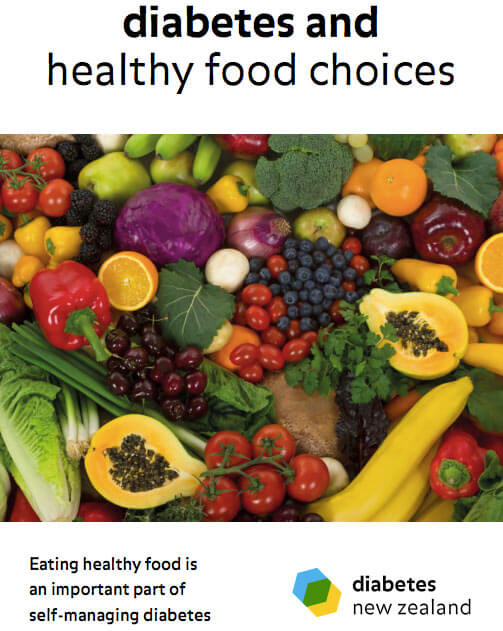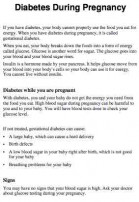During pregnancy your body needs extra insulin. If your body can't produce enough of this extra insulin, glucose from the food you eat can't enter the cells to be used as energy by you and your baby, and the glucose level in your blood increases. Read more about insulin deficiency on the type 1 diabetes page.
Untreated, high blood glucose levels can lead to problems for both parent and baby. Treatment includes healthy eating and exercise, and possibly the use of medicine including injected insulin.
Gestational diabetes usually develops in the second or third trimester of pregnancy and goes away after your baby is born. However, it can recur in future pregnancies and it's important to know you are at higher risk of developing diabetes in later years.









